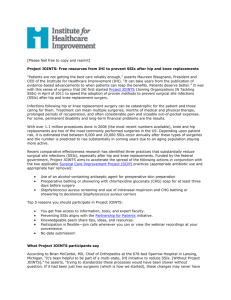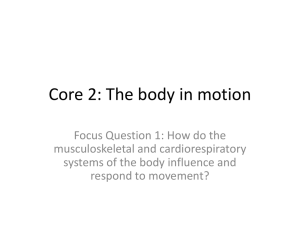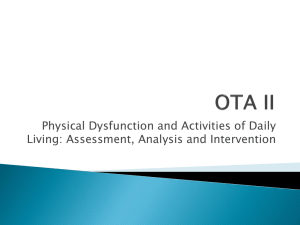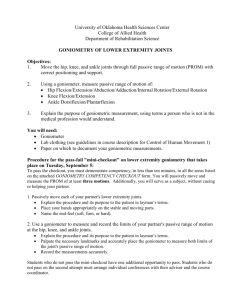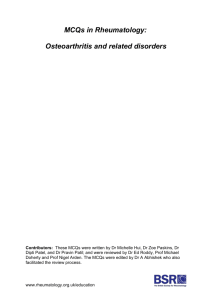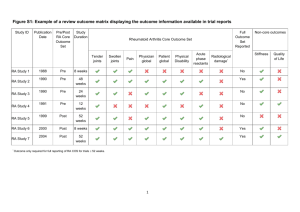press release - Institute for Healthcare Improvement
advertisement
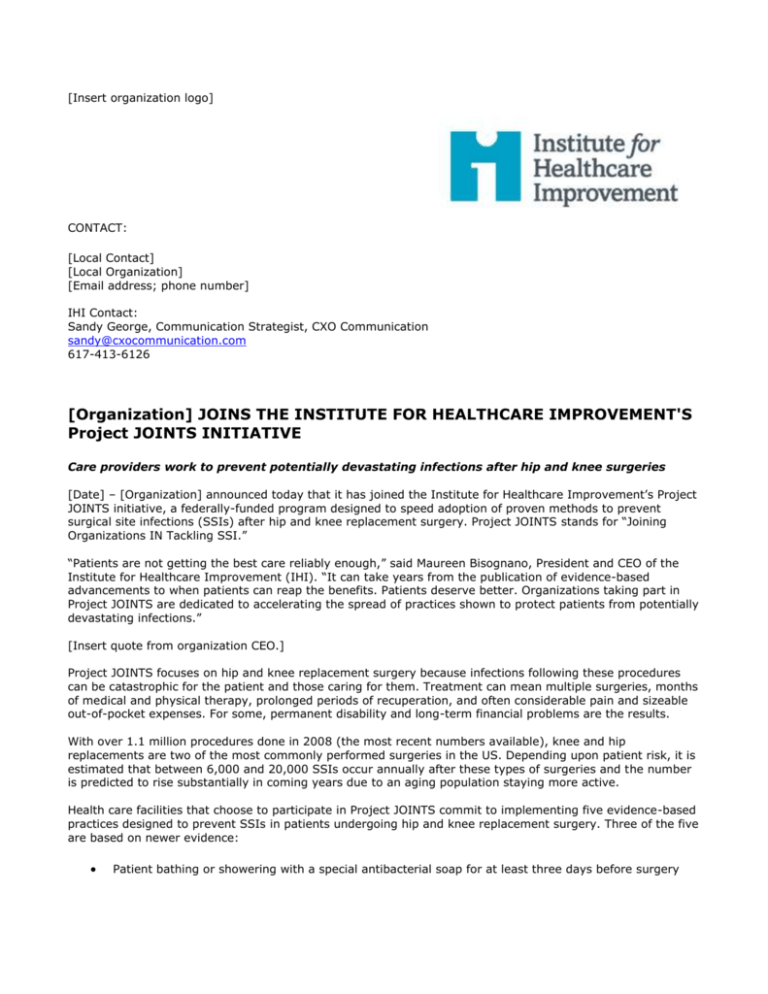
[Insert organization logo] CONTACT: [Local Contact] [Local Organization] [Email address; phone number] IHI Contact: Sandy George, Communication Strategist, CXO Communication sandy@cxocommunication.com 617-413-6126 [Organization] JOINS THE INSTITUTE FOR HEALTHCARE IMPROVEMENT'S Project JOINTS INITIATIVE Care providers work to prevent potentially devastating infections after hip and knee surgeries [Date] – [Organization] announced today that it has joined the Institute for Healthcare Improvement’s Project JOINTS initiative, a federally-funded program designed to speed adoption of proven methods to prevent surgical site infections (SSIs) after hip and knee replacement surgery. Project JOINTS stands for “Joining Organizations IN Tackling SSI.” “Patients are not getting the best care reliably enough,” said Maureen Bisognano, President and CEO of the Institute for Healthcare Improvement (IHI). “It can take years from the publication of evidence-based advancements to when patients can reap the benefits. Patients deserve better. Organizations taking part in Project JOINTS are dedicated to accelerating the spread of practices shown to protect patients from potentially devastating infections.” [Insert quote from organization CEO.] Project JOINTS focuses on hip and knee replacement surgery because infections following these procedures can be catastrophic for the patient and those caring for them. Treatment can mean multiple surgeries, months of medical and physical therapy, prolonged periods of recuperation, and often considerable pain and sizeable out-of-pocket expenses. For some, permanent disability and long-term financial problems are the results. With over 1.1 million procedures done in 2008 (the most recent numbers available), knee and hip replacements are two of the most commonly performed surgeries in the US. Depending upon patient risk, it is estimated that between 6,000 and 20,000 SSIs occur annually after these types of surgeries and the number is predicted to rise substantially in coming years due to an aging population staying more active. Health care facilities that choose to participate in Project JOINTS commit to implementing five evidence-based practices designed to prevent SSIs in patients undergoing hip and knee replacement surgery. Three of the five are based on newer evidence: Patient bathing or showering with a special antibacterial soap for at least three days before surgery Screening patients for the presence of Staph prior to surgery and treating those testing positive Preparing skin at the surgical site with an antiseptic solution that contains alcohol Two of the five practices are based on more well-known SSI prevention practices: Reliably giving the appropriate antibiotics to the patient before starting surgery Avoiding shaving hair at the surgical site IHI has activated its network of state-based organizations and hospitals developed during its 100,000 Lives and 5 Million Lives Campaigns to promote Project JOINTS’ recommendations. (The campaigns were voluntary nationwide initiatives to improve hospital care and reduce patient harm.) To support Project JOINTS participants, IHI provides free tools and resources and encourages the health care providers taking part to learn from one another. Project JOINTS first launched in April of 2011. Arkansas, Colorado, Michigan, New York, and Tennessee were the first states eligible for Project JOINTS participation. Health care providers in California, Maryland/DC, Mississippi, Oregon, and Wisconsin were invited to enroll in the second stage of the initiative in 2012. Project JOINTS was launched nationally in December of 2012. The Institute for Healthcare Improvement (IHI) is a leading innovator in health and health care improvement worldwide. For more than 25 years, we have partnered with an ever-growing community of visionaries, leaders, and front-line practitioners around the globe to spark bold, inventive ways to improve the health of individuals and populations. Together, we build the will for change, seek out innovative models of care, and spread proven best practices. When it comes to raising the quality of health for all, IHI sees boundless possibilities and while we see the walls in front of us, we will not rest until we reach the other side. [Insert organization boilerplate.] ###
